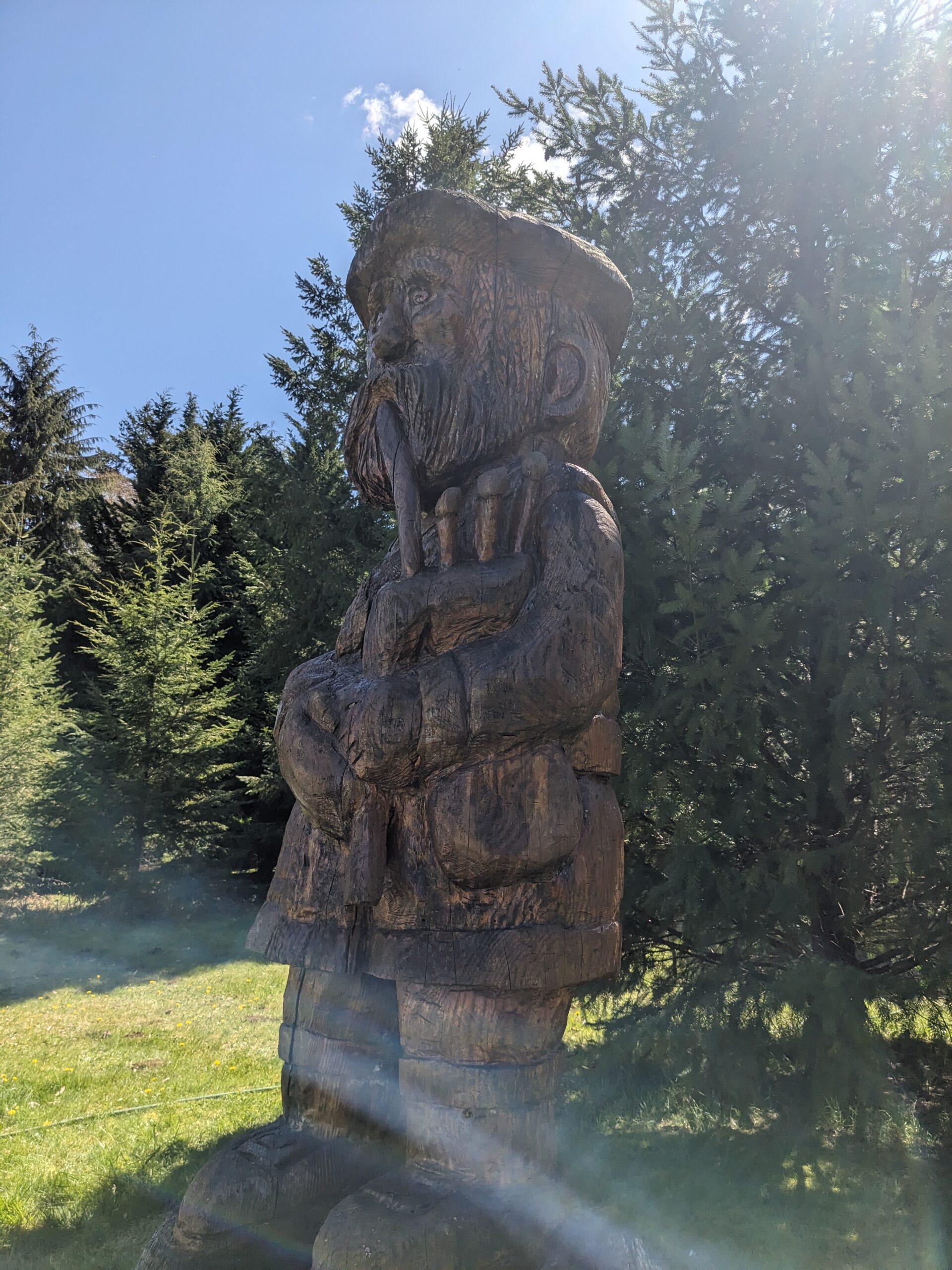So there we were, sitting at a hightop table in a bowling alley, talking to people we’d gone to high school with. The group was interesting – did you know there is a very intense lawnmower racing circuit? The guy who drives a forklift 12 hours a day at the lumber mill, and still somehow finds time to coach generations of basketball. The elite-level volleyball player who talks about how her kids did in sports. Redneck grandma who learned how to braid hair for her mixed-race grandkids. Our mutual classmate who left to become a country star and actually did, but still calls her old friends often.
Inevitably, they asked my sister what she did. “I plan and manage the cables that run the internet”. If you read this blog, you’d probably say “Networking Infrastructure Project Management”. What do I do, then? “Developer Advocate” or “Product Marketing Manager for Software Tools” is not meaningful information to this audience.
I said that I told people they should buy bar oil. Bar oil is what you put on your chainsaw to keep it moving happily as it’s grinding through trees. You need to know about what kind of weather you’ll use it in, and how much you care about splatter. The more expensive or vital your chainsaw is, the more you want to protect it by using high-quality bar oil instead of, like, used engine oil. Your bar oil doesn’t change the quality of your chainsaw, but it does change how it performs, and how much you enjoy using it. Using the wrong stuff shortens the life of your tool.
I just spent a paragraph explaining to you what bar oil is. It’s not because you’re dumber or smarter than professional woodsmen, it’s because a message only works if you know who the audience is and what they care about. If you run in software circles, it’s easy to believe that we’re all talking about the same things – APIs, observability, networking, containers, alla that. We’re not. The APIs that someone interfacing with CMS deals with are different than the APIs for LLMs or LMSs. Mostly the same, but the context matters. A marketer doesn’t have to understand every nuance, but the more context you have when you craft your message, the better it will hit.
I think about this a lot as I’m jobsearching – I can learn pretty much anything, given some time, but I don’t know everything, and it means I lack the context my audience deserves. If I apply for a job that doesn’t fall in one of the buckets I already have expertise in, it’s hard to be convincing that I’ll learn it in time to help my audience.
The more time I spend in marketing, the deeper and more fractally interesting it gets. This is true of pretty much anything you get really into. What’s organic and what’s referred? How does multi-touch attribution work? What does it mean to abolish third-party cookies? I’m still learning these things at more than the surface level. It’s easier for me to learn this for the vertical “software tools” than globally “how marketing works”, which is functionally as complicated as “how computers work” but with more psychology and color theory.
When I stopped being an employee I felt like I didn’t want to learn anything new right then, I was just tired. But I can feel that brain-hungriness resurfacing, and I’m glad to see it. And sometimes it appears as the ability to find the right metaphor at the right moment, even if I didn’t know I’d need it. It feels good.

